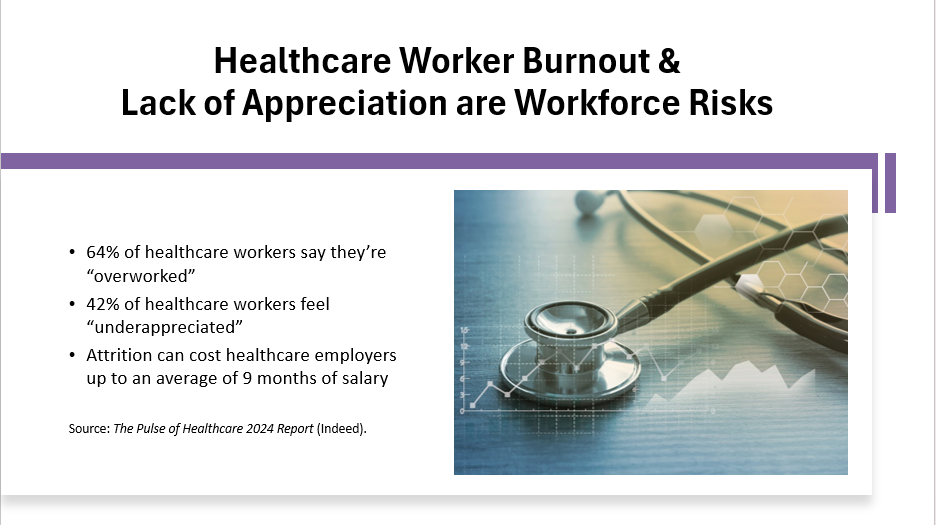Top Workforce Risks in the Healthcare Industry: Burnout & Lack of Appreciation
- srjosephlawfirm
- Jul 11, 2024
- 2 min read
The work that we do at TULIP is industry-agnostic. That’s because enterprise people risks exist wherever there are people working. However, there are some issues that jump out when speaking with workers in particular industries, whether through formal conversations or casual interactions at networking events or just in personal dialogue. In these discussions, the most recurring issue expressed by healthcare workers is burnout – the next most common issue we hear expressed by healthcare workers (mostly on the clinical (practitioner) side) is toxic culture.
Regarding burnout, there’s recent data from Indeed that shows 64% of healthcare workers said they feel “overworked”. Another 42% of healthcare workers feel “underappreciated”. Yet, over 80% of those same workers want to continue working in healthcare, although they are less inclined to stay with their existing employers. To substantiate the risk of attrition among healthcare workers, the Indeed survey data shows an average tenure of 4 years or less for over 50% of the healthcare industry survey participants. Attrition is oftentimes the result of burnout, lack of appreciation/recognition and toxic workplace culture, among other adverse workforce experiences.
From a workforce risk perspective, attrition has long tentacles with extensive impacts to organizations – reduced productivity, negative reputation, and significant financial costs, to name a few of the impacts. The impact of the financial cost related to attrition among healthcare workers is about 6 to 9 months of salary according to Indeed. The drivers for attrition such as feelings of being overworked and/or underappreciated also lead to low morale, drops in productivity, high absenteeism, all of which create a Disengaged Workforce. According to a recent Gallup study, employers with Disengaged Workers have lower profitability, to the tune of over 20% lower, than employers with a highly engaged workforce. Thus, attrition and its root causes must be proactively managed as workforce risks.
At TULIP, we lead with data to create the story about workforce risks at your organization. We start with our innovative 4-dimensional workforce experience risk assessment and integrate automated measurements with human insights to leverage strengths and prioritize areas of improvement. Our deliverables result in data-driven and guided strategic direction for operationalizing enterprise people risk management. In so doing, our TULIP teams collaborate with employers to (target) resolve people problems (with data-driven, solutioned investments) and safeguard business outcomes by transforming unmitigated (and under-mitigated) risks into positive outcomes – that’s what we call The TULIP Way.
To learn more about how TULIP addresses workforce risks to safeguard business outcomes, feel free to email us at info@tulipadvisory.com or give us a call at 678) 990-0910. We look forward to hearing from you!




Comments